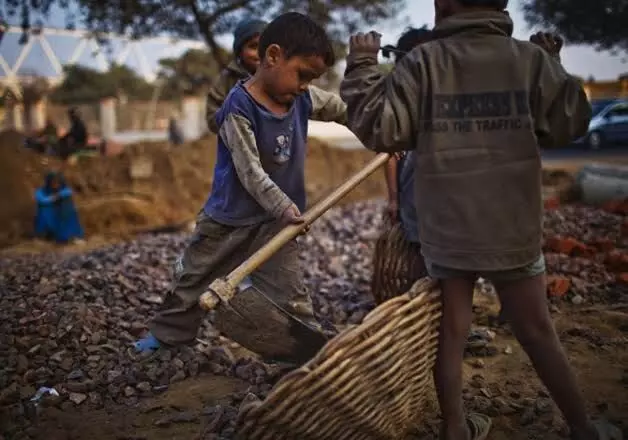
New UN report finds child labour, caste-based discrimination, poverty closely interlinked in India
text_fieldsRepresentational image only
United Nations: A recent report by the United Nations has stated that poverty and practices such as caste-based discrimination and child labour are all interlinked in India.
"In India, child labour, caste-based discrimination and poverty are closely interlinked. Child labour among minority and migrant children has also been reported in Angola, Costa Rica, Honduras and Kazakhstan, in various sectors," the report said.
According to PTI, the report highlighted contemporary forms of slavery, including severe discrimination against Dalit women in South Asia due to which they are systematically denied choices and freedoms in all spheres of life.
Human Rights Council Special Rapporteur Tomoya Obokata, in his report on contemporary forms of slavery, including its causes and consequences, said that deep-rooted intersecting forms of discrimination, in combination with multiple other factors, are the main causes of contemporary forms of slavery affecting minorities.
He added that they are often the result of historical legacies, such as slavery and colonisation, systems of inherited status, and formalised and state-sponsored discrimination.
Obokata said in the report to the UN General Assembly Wednesday that child labour (among children 5 to 17 years of age), including its worst forms, exists in all regions of the world.
In Asia and the Pacific, the Middle East, the Americas and Europe, between 4 and 6 per cent of children are said to be in child labour, and the percentage is much higher in Africa (21.6 per cent), with the highest rate in sub-Saharan Africa (23.9 per cent).
The report also notes that systematic discrimination has profound implications for the ability of affected individuals and communities to live a life of dignity and enjoy human rights on equal footing with others. Marginalised communities often remain overlooked in public policies and national budgetary allocations, and their access to justice and remedies in cases of human rights violations, including contemporary forms of slavery, is generally limited.
It is said that the stigmatisation of some communities is perpetuated by negative stereotypes in the media, textbooks, or on the Internet, which contributes to their disempowerment.
People discriminated against on the basis of work and descent represent one example. They are bound by their inherited status and subjected to dehumanizing discourses that refer to "pollution" or "untouchability", with no respect for human dignity and equality.
"Consequently, such people have limited freedom to renounce inherited occupations or degrading or hazardous work and are often subjected to debt bondage without sufficient access to justice," the report said.
"Additional intersectional factors, such as class, gender and religion are also affected by caste realities. Dalit women in South Asia face severe discrimination, and as a result they are systematically denied choices and freedoms in all spheres of life," it said, adding that consequently their access to services and resources is very limited, increasing their risk of being subjected to contemporary forms of slavery.
The report further notes that bonded labour continues to be prevalent among people discriminated against on the basis of work and descent, such as Dalits in South Asia.
"Manual scavenging, predominantly carried out by Dalit women, is widely regarded as forced labour and a contemporary form of slavery, entailing harsh working conditions that have a negative impact on mental and physical health." Obokata said in the report rates of child marriage spike among marginalized communities in particular, such as Roma girls in South-Eastern Europe.






















